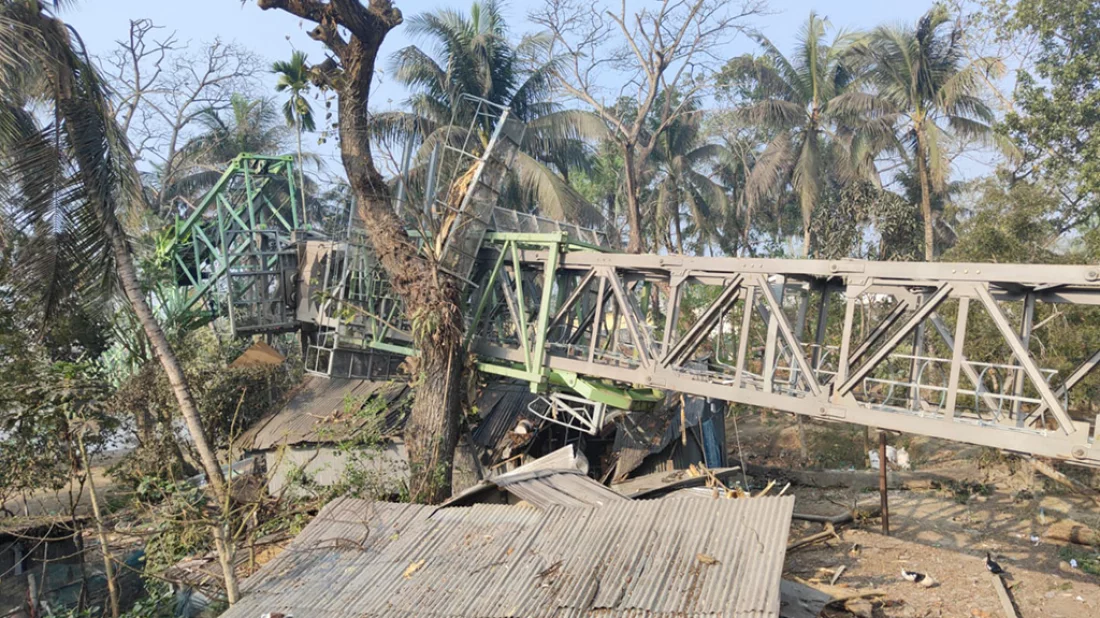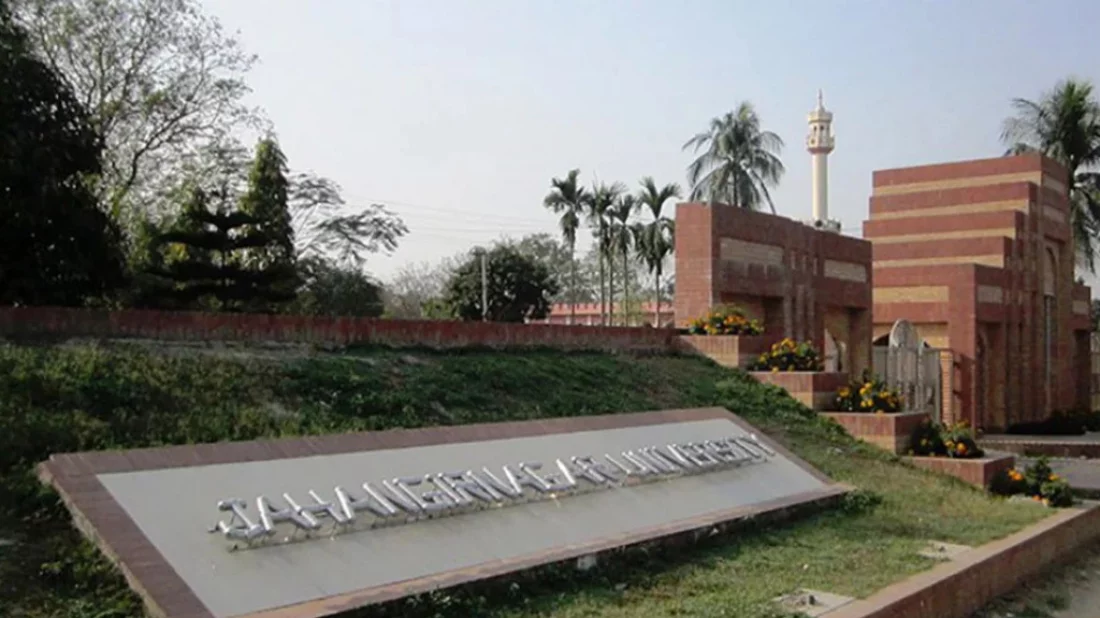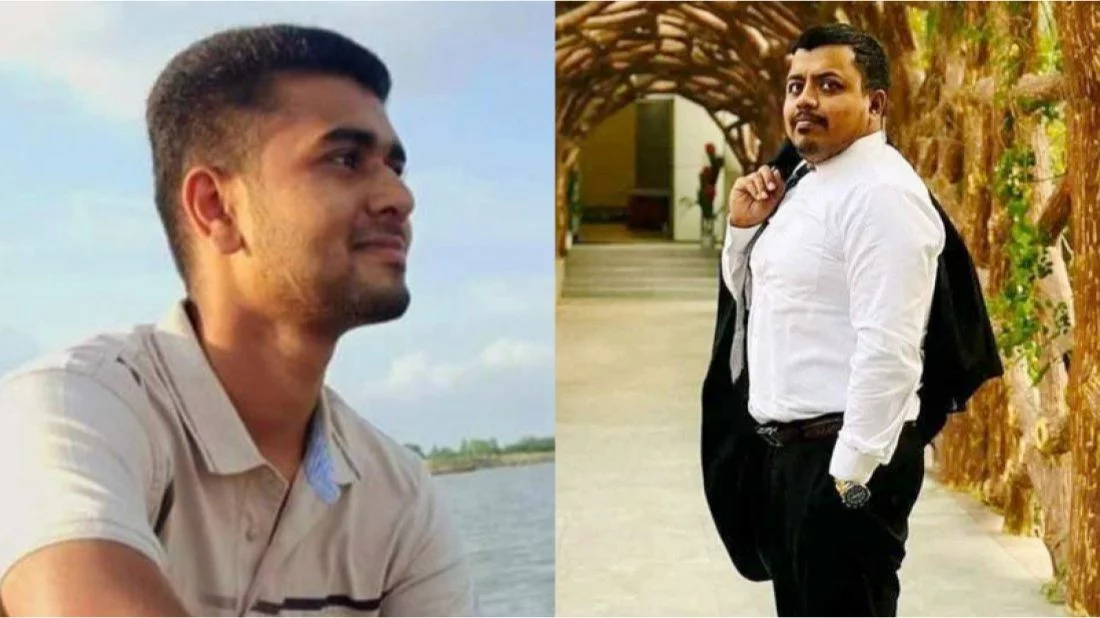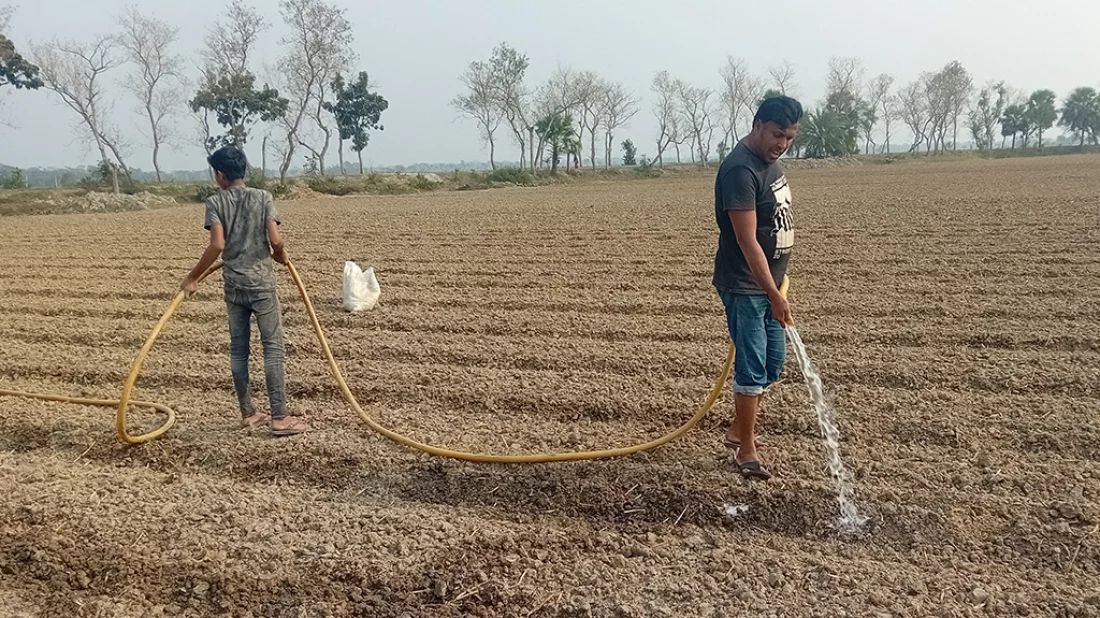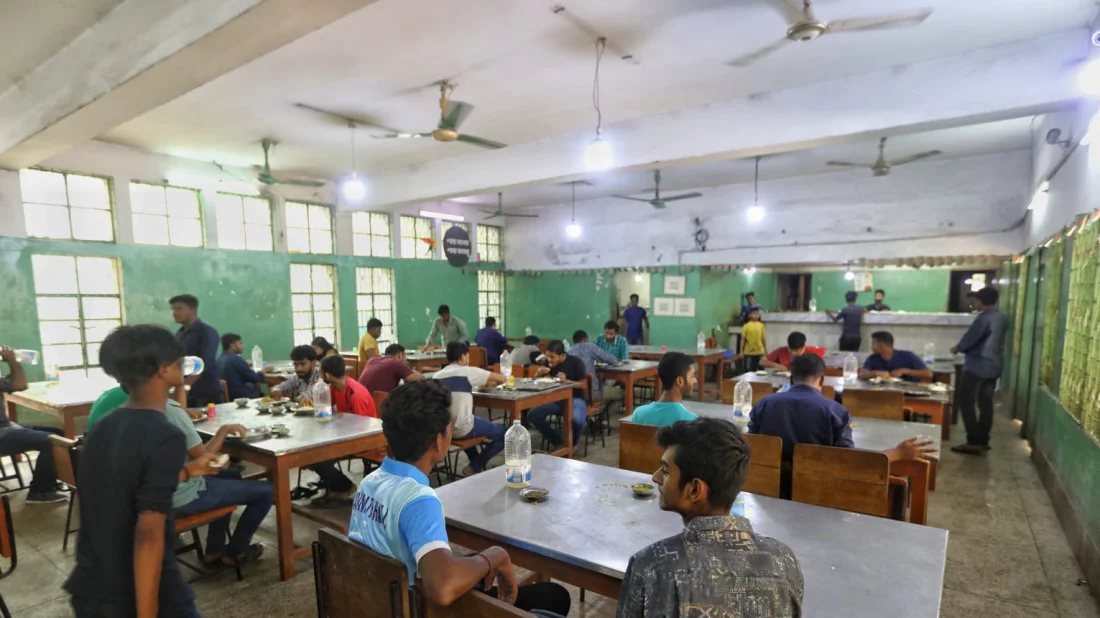
One day, Ismail went to the hospital with a severe stomach problem, which he had been suffering from for months. The doctor asked him about his regular meals, and after listening to him, he recommended that Ismail change his regular meal so that the problem wouldn’t worsen further.
As a student of the University of Dhaka and a member of a department in its Social Science faculty, Ismail Zabiullah Nahid hardly has the facility to change his regular malnutritious food consumption.
The Social Science faculty building of Dhaka University, comprising 15 departments, doesn't have a canteen for its students to access a regular nutritious meal. This creates a challenge, as numerous students have classes throughout the day, requiring them to spend extended hours on campus.
Dhaka Tribune spoke to Dr Zia Rahman, dean of the Faculty of Social Sciences, regarding plans for a canteen for the faculty's students. He expressed concern about the matter, saying they have already been actively working to address it.
Dr Rahman mentioned the challenge of finding a suitable location within the Social Science building for the canteen during their efforts. He has formally discussed the issue with the university's vice-chancellor.
Though the ground floor of the building functions as a parking facility for vehicles belonging to academics, many students believe that this place could be an ideal location for the desired canteen setup.
The correspondent asked Prof Muhammad Samad, pro-vice chancellor (admin) of Dhaka University, about the canteen issue. He mentioned that the Social Sciences Faculty lacks space for a canteen, and he believes that using the ground floor, currently a parking area, is necessary.
Regarding setting up a canteen in Motaher Hossain Chowdhury compound, he mentioned that a draft has been passed to build a well-facilitated canteen in the Mukarram Hussain Khundker Biggyan Bhaban compound. This would serve students from Motaher Hossain Chowdhury Compound and Curzon Hall Compound conveniently.
He also talked about the need for a pharmacy shop, suggesting that it shouldn't be difficult for young students to buy medicine from Shahabag or Dhaka Medical College Hospital.
The DUCSU canteen is close to the Social Sciences Faculty building, but it operates for limited hours while students have long periods of classes, and sometimes they do not get a break between classes.
The current platter of the meal at the DUCSU canteen, consisting of a small portion of chicken, rice, and boiled egg curry, is unsatisfactory and inadequate for a proper lunch, students said.
Boiled egg curry is in high demand among students, as students get to have a whole egg at least with the platter, and it frequently runs out of stock.
The other stalls near the social science faculty, including the popular Hakim Chattar, have items for lunch such as tehari and khichuri, which are sold at a reasonable price but in very low quantities and students do not have any proper place to eat or drinking water facilities. People mostly finish their meals while standing, and dogs and crows are always spotted all over the place.
The food in the shops is prepared in an open environment. There is a lot of crowd which kicks up a lot of dust, as there is no grass in Hakim Square. After eating food, many people leave the plate of food on the ground. The leftovers are often eaten by crows and dogs and the plates are reused by the shopkeepers after a light wash.
Consuming food from plates licked by street dogs and crows carries severe health risks due to potential exposure to various pathogens and contaminants. It increases the likelihood of bacterial and viral infections, leading to conditions such as food poisoning, gastroenteritis, and other infectious diseases.
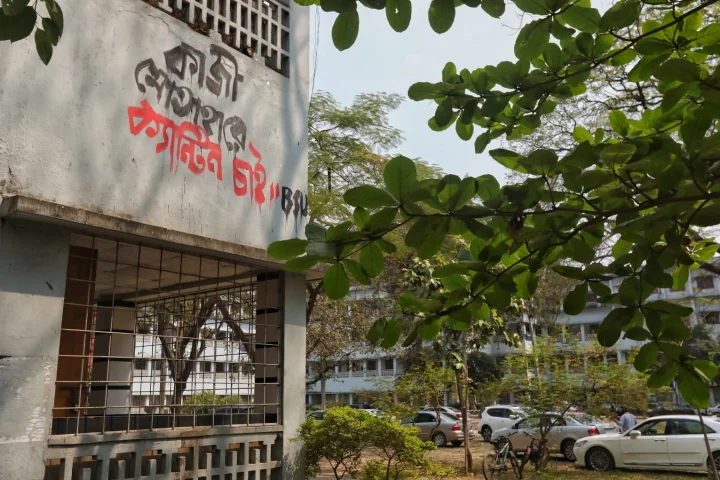
Protests demanding new canteens on the DU campus are almost a yearly occurrence. Photo: Ahadul Karim Ahad/ Dhaka Tribune
These diseases are caused by various bacteria, viruses, parasites, or fungi that may be present in the saliva or on the fur of animals.
Student Shakib Al Hasan said: "Being a campus reporter, I need to maintain a tight schedule between my classes and work. I don’t get much spare time to go back to my hall for lunch, so most of the time I need to have my lunch here at Hakim Chattar, mostly eating tehari for Tk40.
“I need to move a lot, most of the time on foot. I hardly get energy from lunch here. It just curbs my hunger temporarily. And these two stalls are always crowded by outsiders. We do not get balanced food from the shops, and a lot of people from outside the campus gather here at these shops. This affects our normal learning environment,” he added
Sometimes, male students go to Jagannath Hall, located beside TSC, for their lunch while female students cannot go to Rokeya Hall or Samsunnahar Hall, which are near the Social Science Faculty area, since female students of other halls are not allowed to enter the halls.
While Sufia Kamal Hall is about 1 kilometer away from the social science faculty, Kuwait-Maitree Hall and Bangamata Sheikh Fazilatunnesa Hall are about 1.5 km away from the Faculty of Social Sciences. The rickshaw fare for a round trip is a minimum of Tk80.
There is no pharmacy in the entire Dhaka University area. If students need to purchase pharmaceutical products, they must either travel to Chankharpool or Shahbag. Female students face significant challenges during sudden menstruation as there is no nearby pharmacy for buying sanitary napkins.
The east side of the Shaheed Minar, a compound comprising six departments and the Faculty of Law with nearly three thousand students, does not have any general canteen for the students.
However, there is a canteen in the Mathematics department that attracts students from various departments. This has led to a substantial crowd and long lines, particularly during breakfast or lunch. Students have reported fights breaking out among students often due to the overcrowding and long queues at the Mathematics canteen.
In 2018, about a thousand students, including students of all the departments of the compound, formed human chains and submitted memorandums to all the chairpersons and deans of the compound demanding a solution to the food issue. Classes were also boycotted, but later the teachers assured them that there would be a canteen. Students have made such demands several times in the past, but none of them have worked.
Arafatul Osmani, former event organizer at the office of the International Affairs Secretary, DUCSU, who led the "Motahar Hossain e Canteen Chai" protest in 2023, said: "In 2023, I, along with students, held a human chain and rally in front of the compound for several days demanding a canteen. There were many leaders of almost every active student organization including Chhatra Union, Chhatra Adhikar, Chhatra League, Chhatra Dal. Although the teachers have given assurances, nothing is visible yet."
“In solidarity with the demands of the students, the VC approved land for the canteen, beside the Shaheed Mortaza Medical Center. The then VC, Pro-VC, DUCSU leaders, Law Society, and Dhaka University Alumni Association president-secretary were present on that day. I do not know why VC Akhtaruzzaman Sir later cancelled all the initiatives.”
A student of the Faculty of Law said: “In the adjacent maths department canteen, there are regular quarrels with the students of the Mathematics department. I myself have witnessed such fights several times.”
Hasan Mahmud, a former student of the 2016-17 academic year of the Faculty of Law, said: "Our students here have been demanding this (a new canteen) every year. We have tried in various ways, including human chains, to make a canteen. But none of them worked. Our students often have to go to the canteen of Dhaka Medical College or Jagannath Hall to eat. Which is very time-consuming.”
The same problem affects the Science Complex building and Mukarram Hussain Khundker Biggyan Bhaban compound, comprising 6 important departments, 2 institutes, one faculty, and the Dhaka University Science Library. Students in that area mostly depend on an open, unhealthy food cart located beside the Institute of Food and Nutrition. Many students from those departments lead an unhealthy routine due to the lack of canteen facilities.
Sharmila Shurovi Pushpita, a 2nd-year student of the Department of Computer Science and Engineering, said after her long hours of intensive theoretical classes and Lab classes, she needs a good meal. But most of the time, she goes back to her home at Savar without eating anything.
"I'd rather go hungry than risk consuming unhygienic food. I have my meal after going back to my home at Savar. Sometimes I eat bread and bananas to curb my hunger. I know it’s not the healthiest, but I do not have any other option.”
On August 29 last year, Dhaka University students formed a human chain and submitted a memorandum to the then Vice-Chancellor demanding the opening of a canteen and cafeteria at Mukarram Bhaban and Curzon Hall area. At the same time, there was a demand to set up pharmacies in these two areas. Even after six months, no progress is visible.
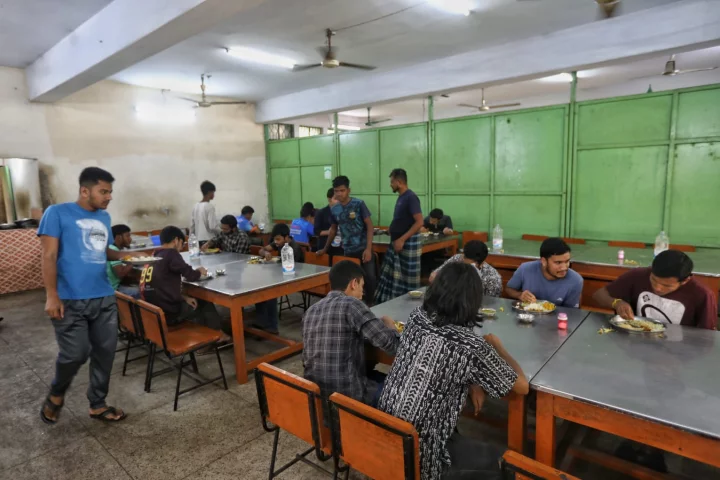 The canteen at Jagannath Hall is used by many male students due to its convenient location by the TSC. Photo: Ahadul Karim Ahad/Dhaka Tribune
The canteen at Jagannath Hall is used by many male students due to its convenient location by the TSC. Photo: Ahadul Karim Ahad/Dhaka Tribune
Nafiul Islam Adeeb, a student of this University, said: “We have 30 minutes for lunch. It is not possible to eat from the hall in this short time. There are a few small food shops in the open environment behind the Science Library. There is no quality food, no place to sit. During the rain, you have to eat food in a dirty and unhealthy environment. As a result, our basic needs are being undermined, students are falling sick due to a lack of food.”
Sabiha Sultana, a student of the Food and Nutrition Institute, said about 40% of the students in the Faculty of Science are women. “There is no medicine and kit service for women in our emergency needs. They give us the excuse of Dhaka Medical, but we need a separate pharmacy or vending machine for the urgent needs of female students of the university.”
Though there is a canteen in the Curzon Hall area, hardly ten people can eat in the canteen together. Students of the science faculty have intensive classes and lab classes all day long, which extend from 8 in the morning to 5 in the afternoon sometimes.
In spite of these visible problems, the Dhaka University authorities are very reluctant to solve the problems, said several students.




